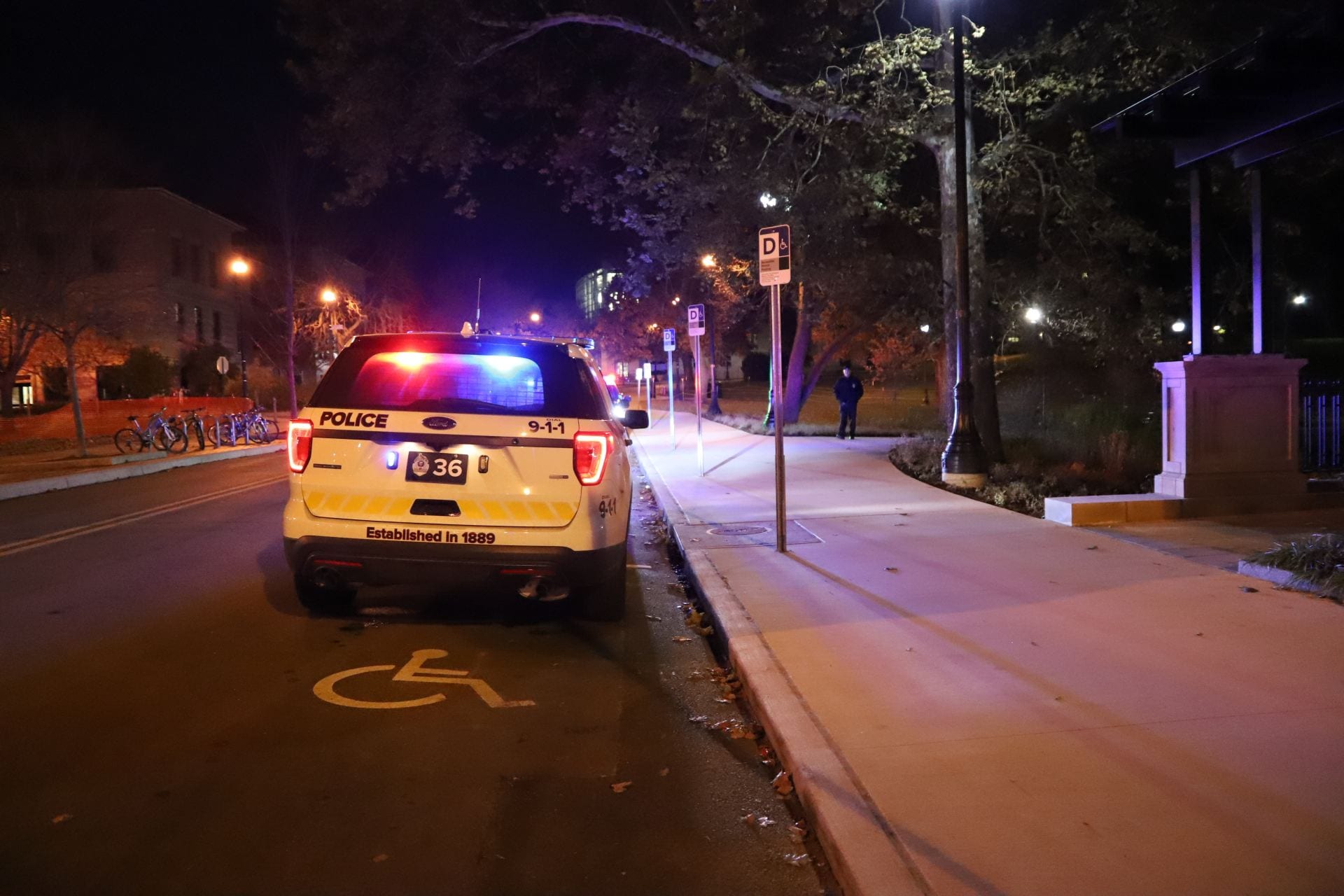
Emily Parris speaks about reproductive rights in front of the crowd after marching to the statehouse. Credit: Paul Becker
Protestors gathered at McFerson Commons Park in the Arena District on Saturday in opposition to legislation — like the six-week abortion ban — that protestors said restricts women’s reproductive rights.
The rally was the first event led by Voices United for Women, a local volunteer activist organization co-founded by six Ohio women between ages 20 and 24. According to their count, at least 1,500 people were in attendance this weekend.
The small park was filled with activists from all walks of life. Slogans such as, “My body, my choice,” and “Girls just wanna have fundamental rights,” were printed on fluorescent pink poster boards, while chants of, “Not the church, not the state, women must decide their fate,” could be heard between speeches by politicians, activists and medical professionals.
Ohio State students, including Voices United for Women volunteer and fourth-year arts management student Isabel Wening, were among the protestors.
“I’m here for those people who can’t be, or those people who want to say something, to help them say something,” Wening said.
Emily Parris, one of the co-founders and a recent Wright State graduate, said they organized the event in response to the recent passage of Senate Bill 23, or the “heartbeat bill,” a ban on abortions after six weeks of pregnancy, that was signed into law in Ohio on April 11. She said her vision for the event was not necessarily to pressure legislators, but to amplify the voices and stories of the people most affected by these laws.
“We fully believe that no one has to be an expert in anything to be an activist in it,” Parris said. “You are an expert in your own story and your connection to the issue.”
Parris recounted her struggle after learning she was pregnant during treatment for ulcerative colitis. Parris said she could only receive her life-saving treatment at the cost of the pregnancy.
Another speaker, OB-GYN Kristi Pedler, echoed Parris’ views on the medical necessity of abortion. She related the daily procedures and prescriptions, including contraceptives and terminations, that she provides to her patients in order to protect their health.
Pedler also referenced House Bill 182, currently in committee at the statehouse, which would prevent insurance from covering abortions of any kind unless the mother’s life is endangered. This bill could potentially define IUDs and some birth control pills as abortifacients, Pedler said.
Pedler ended her remarks by condemning government intervention in women’s health.
“Legislators cannot and do not know what is needed in any medical situation. Trust women,” she said.
Ohio House Representative John Becker, who introduced H.B. 182, disputed the claim that the bill would restrict access to contraceptives and said he hopes bills like his are taken to the Supreme Court to overturn Roe v. Wade.
“Ultimately, I want to see Ohio be a pro-life state. That all persons, born and unborn, will be protected in law,” Becker said.
Columbus City Council President Pro Tempore Elizabeth Brown also spoke at the event, stressing the importance of abortion and birth control in public health. In the past, Brown sponsored an ordinance to protect patients and providers at family planning clinics.
“If you look around the country and you look at states that have the most restrictions on abortion care, you will see that correspond to the worst health outcomes and for babies,” Brown said. “So let’s be clear about what restricting abortion does: It makes babies less healthy and it makes women less healthy.”
After the speeches ended, organizers led the crowd in a march to the statehouse. Chanting and waving signs, the procession elicited both supportive cheers and a few shouted insults from passersby.
A wedding party was taking photos in front of the statehouse when the protesters marched up the steps. Bridesmaids in purple gowns joined the rally, holding their bouquets over their heads.
Upon arriving, attendees were encouraged by organizers to use their voices to take action by calling legislators and attending committee meetings.
The goal of marching to the statehouse was not to change legislators’ minds, Parris said. The real goal, she said, was to build morale, elevate marginalized voices and increase solidarity.
“A lot of people go to a protest hoping it’s going to create some legislative impact, and that’s not realistic,” Parris said. “Yes, we can hope that maybe they see that, but I think our legislators already knew that women in Ohio didn’t want this and they did it anyway.”


